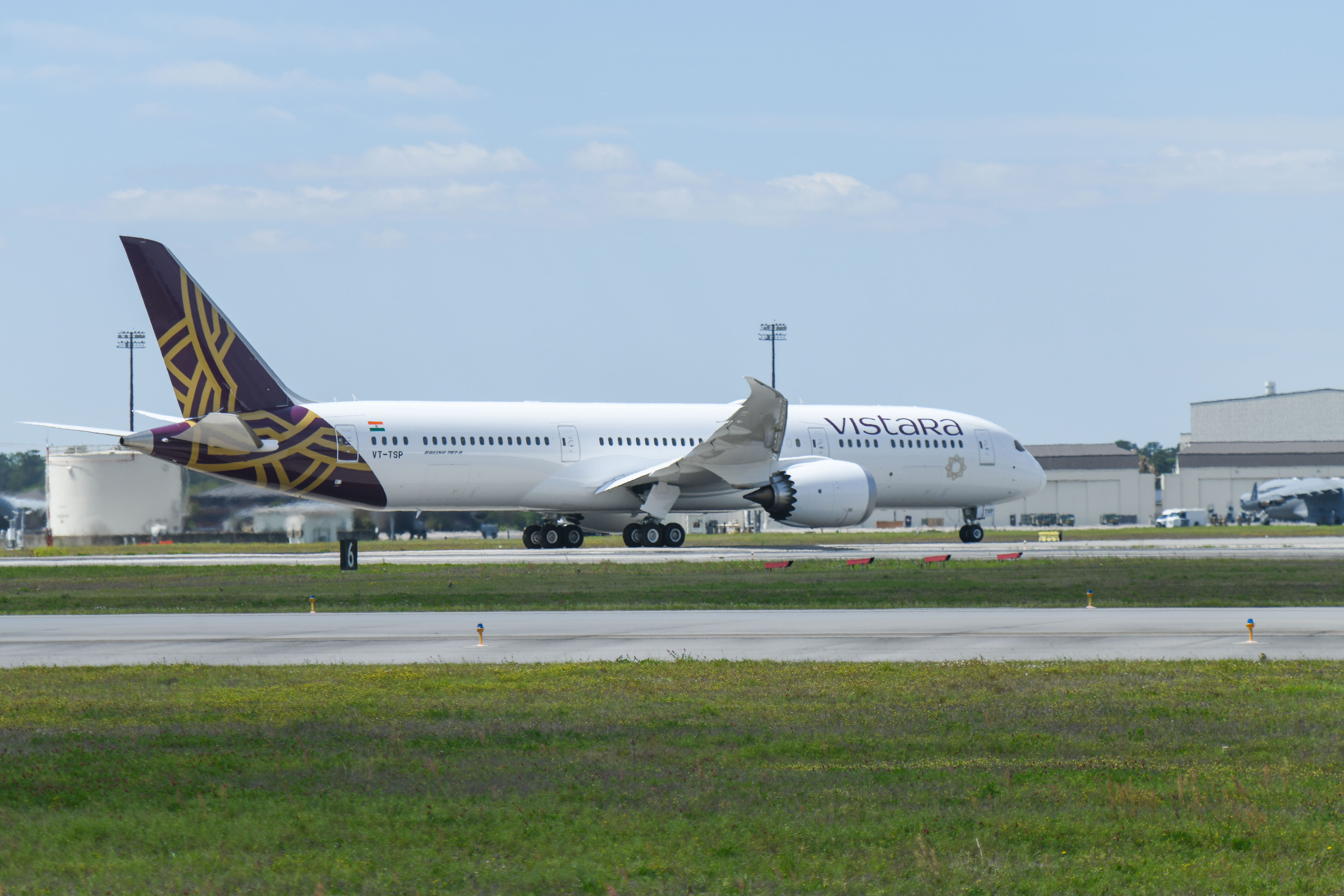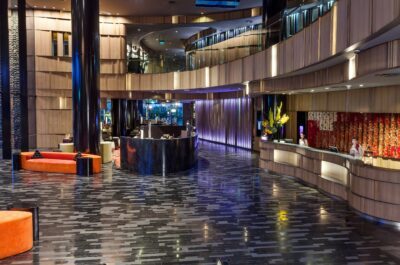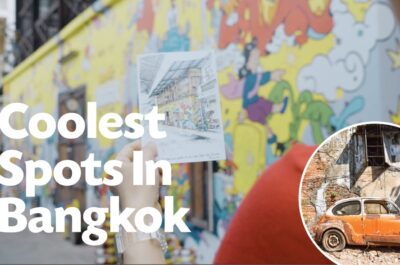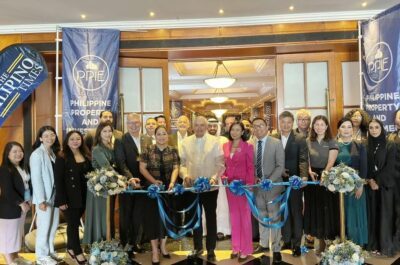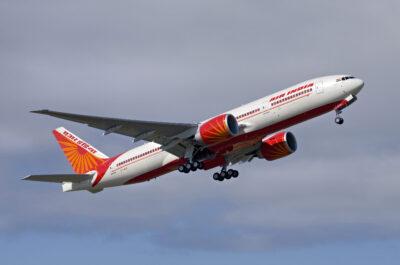Thailand has long attracted outsiders through its exotic allure. What keeps making visitors return are repeated encounters with the genuine Thai values behind that intangible mystique. ‘Thainess’ now forms the heart of the country’s tourism promotion, because unique cultural attractions so enhance a holiday…
 Thailand has long attracted outsiders through its exotic allure. What keeps making visitors return are repeated encounters with the genuine Thai values behind that intangible mystique. ‘Thainess’ now forms the heart of the country’s tourism promotion, because unique cultural attractions so enhance a holiday.
Thailand has long attracted outsiders through its exotic allure. What keeps making visitors return are repeated encounters with the genuine Thai values behind that intangible mystique. ‘Thainess’ now forms the heart of the country’s tourism promotion, because unique cultural attractions so enhance a holiday.
As discerning travellers become jaded with mass tourism and artificial attractions, they increasingly seek out more authentic experiences. And they put a premium on social responsibility. Thailand retains its traditions to an unusual extent, and adapts them to suit the occasion with confidence, flexibility and a can-do service mentality. The country also has a host of tourism projects that are sponsored by altruists that enable communities to supplement their income while maintaining their customs and preserving the indigenous environment.
This proactive openness enables visitors not just to observe Thai culture, but to preserve and participate in it. You can join the dance, cook the food, meet the artist, support the school, make the offering, share the lifestyle, or have the experience.
The country keeps in touch with its history. This provides a deep cultural well from which travel operators can draw in tailoring itineraries. They can draft distinguished Thai and international experts to enhance a personalized expedition into things Thai.
The distinct cultures of the north (Lanna), south and northeast (Isaan) become apparent through guides who know the secret places, hidden histories, ethnic traits and regional specialities.
Special moments often come from the frequent surprises that make Thailand so refreshing. But three elements nurture an exceptional experience: customised events, learning a Thai skill, and community contact.
Customised Events
Trademark sights and activities take on magical qualities when presented exclusively for you as a bespoke experience. Highly experienced professional event organizers draw on their wealth of expertise – honed through festivals, special events and light-and-sound performances – and can transform a heritage location with quintessentially Thai atmospherics.
Private viewings of old aristocratic mansions, palaces or teak stilt houses can morph into a banquet of royal cuisine. An ensuing performance replicates the original intimate scale of khon and lakhon dance, close enough to see the gilding glimmer, read the gestures, and witness behind-the-scenes vignettes.
You could intersperse such features through multi-day cruises along rivers and canals on vessels like converted rice barges. Dine on deck or at old wooden markets, sleep in teak cabins, and awake on a village waterway (klong) to see monks paddling canoes as they collect their alms. A lattice of backwaters threads through the provinces surrounding Bangkok. On-board advisors can explain the ecology, wildlife and rice culture before you kayak off on side-trips.
Lanna houses, Isaan’s Khmer-style sanctuaries, and Southern beach pavilions can all act as settings for culture-themed parties, whether on an intimate scale or as huge spectacles with a cast of costumed torch-bearers. Such exquisite scenarios are achievable because Thais, too, commission extravaganzas, whether for festivals, launches, parties, charity or ceremonies that mark the seasons or the cycle of life.
What sets custom events apart from regular tourist shows is the detail. Consultation with the cognoscenti who take pride in doing things the right way ensures adherence to accuracy, however fantastical the impression.
Learning with Masters
Visitors increasingly seek more than cultural nuances; they want hands-on participation. Across many fields dubbed phumipanya (Thai wisdom) – dance, massage, martial arts, herbalism, cooking, crafts – you can begin to acquire a new skill. The unusual, such as learning to be an elephant handler, or mahout, at a camp may have less application to one’s life than, say, studying meditation from a learned monk.
Core to studying Thai wisdom is the need to find your khru – literally a guru. Masters can tutor individuals or groups, from an overview to a full-on course. Many foreigners study Muay Thai boxing at commercial camps. Only a few get inducted into the ancient regional styles like Muay Chaiya or Muay Khorat that accentuate artistry and strategy.
Just as knowledge of art history enhances a gallery visit, an introduction by a scholar of Buddhist art and architecture transforms temple visits from potential repetition into discoveries in diversity. Similarly, know-how from aficionados of crafts and textiles can turn initiates into avid collectors. Now curators offer fans of contemporary art privileged access to studios and advice on emergent artists.
Hotels like The Peninsula and The Oriental run programmes introducing several traditions, while revelatory cultural courses, such as those offered by Origin, delve deeper into how the arts interlace. Participants glean insights into the underlying themes that make something Thai. For instance, the symbolic patterns (lai Thai) found in costumes, sculpture, murals, garlands, fruit carving, even etiquette.
Few things more impress a host – and put a visitor at ease – than following local etiquette without being clumsy or condescending.
All Thai arts involve wai khru – rituals to honour masters. These rites serve as a cultural bond and a personal grounding.
Nothing bonds Thais more profoundly than food. A vast number of schools teach how to cook Thai, though gastronomic experts McDang (M.L. Sirichalerm Svasti) and Vatcharin Bhumichitr bring acumen to market fare, home cooking and royal cuisine. Culinary tours by international chef Robert Carmack of Globetrotting Gourmet may lodge foodies in smart hotels, but trace regional specialities to their often simple source in street stalls and one-dish cafes.
Moving from urban jungle to genuine jungle, the adventurous can explore Thailand’s remaining wilderness. In national parks and wildlife sanctuaries, including World Heritage sites, you can trek deep into the forest with rangers, ornithologists or environmentalists, and learn how to track big cats or spot gibbons and hornbills.
Community Contact
An underlying reason for the interest in indigenous culture is the urge to conserve. Tourism helps perpetuate traditions best when communities have a say and benefit directly. Many custom operators involve villagers, artisans, scholars and non-governmental organisations to enhance what’s most essential.
Homestays, eco-tours and voluntourism often derive from pioneers who care deeply about the social and environmental effects of development. Meeting villagers and contributing to sustainable projects brings awareness of micro-concerns to the new category of conscientious traveller. The 2004 tsunami inspired many visitors to get involved in regeneration projects, like Andaman Discoveries, that started to morph into models of grassroots tourism.
Community development has long been a Thai tourism attraction. Royal projects have created a national network of ‘living museums’ where you can explore initiatives in crafts and agriculture that present a vivid illustration of the principles of ‘sufficiency economy’ advocated by HM King Bhumibol Adulyadej being put into actual practice.
The flipside of identifying Thainess is to detect community links with foreign lands. Just as Americans trace their ancestry in Europe or Africa, the Chinese and Indian diasporas seek out both intriguing hybrids and pockets of unchanged ancient traditions in the Chinatowns and Little Indias of Thailand.
Since the 16th century, openness to international influence has resulted in multicultural fusions and enclaves of descendants from many countries. Ethnic tours can cover food and festivals, arts and architecture, plus contributions by historic figures.
Foreign links often extended into the Siamese court, from Ayutthaya and Lop Buri to Bangkok. Tracking the input of ambassadors, artisans, families and traders becomes a way to view Thai royal history from King Narai to the present Chakri dynasty.
Authentic Experience
Perfect moments come when serendipity is made possible by careful attention to authenticity and integrity. You can witness the transcendent result at, say, the culminating party of an Origin program, a courtly banquet at Suan Pakkad Palace, the beach blessing of a donated fishing boat, a boxer’s wai khru rite, or the turning of Mae Fah Luang Foundation into a Lanna tableau, angels serenading in trees, lanterns floating into the sky.
What sets Thainess apart is its flexibility, resourcefulness and flair for the sublime. Customised travel experiences apply – and help maintain – that tradition.
Theodore is the Co-Founder and Managing Editor of TravelDailyNews Media Network; his responsibilities include business development and planning for TravelDailyNews long-term opportunities.



